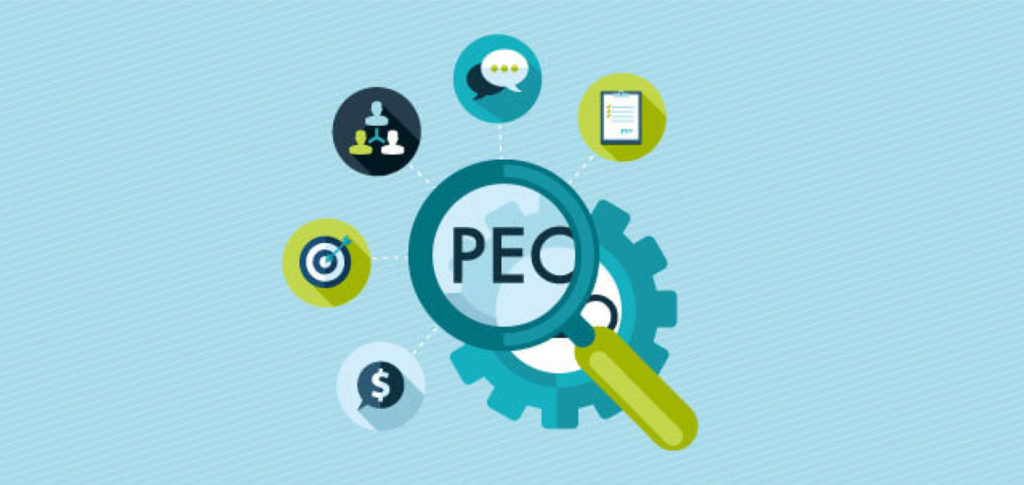A Professional Employer Organization provides day-to-day human resource management services for their clients. The PEO acts as an employer of record for all employees, insuring compliance with local, state, federal laws including FMLA, COBRA and I-9 documentation. Other responsibilities include payroll processing, benefits administration, risk management and Workers’ Compensation coverage, risk management and compliance training. In addition, PEO’s offer their clients access to a variety of online human resource services such as applicant tracking systems, employee self service portals, benefits administration etc.
PEOs provide employers with flexibility in managing their workforce while relieving the employer from the day-to-day responsibilities of hiring, payroll and compliance. This service advantage offers employers a competitive edge in a demanding business environment.
A PEO is a company that provides employer services to small and medium-sized businesses, taking over all or part of the responsibilities involved with employing staff. They typically provide back office support such as payroll processing, benefits administration, risk management and Workers’ Compensation coverage, and also offer their clients access to a variety of online human resource services such as applicant tracking systems, employee self service portals.
A PEO typically provides employers with flexibility in managing their own workforce–while relieving the employer from the day-to-day responsibilities of hiring, payroll compliance. This service advantage offers employers an edge in a demanding business environment. According to the National Association of Professional Employer Organizations (NAPEO), there are currently about 300 PEOs in the United States, up from 100 in 2000 and 10 in 1980.
The main difference between a PEO and an employer is that PEOs serve as co-employers by assuming many employer obligations. In most cases, the PEO focuses on back office activities such as insurance claims and processing payroll, while employers maintain responsibility for front-office tasks involving employees.
PEOs typically specialize in working with small to medium-sized companies by offering services that include human resource management, benefits administration, employee self-service tools and training programs.
A PEO that helps a growing company build a core of employees can help that firm create a culture and business plan to retain those staff members.
Employers typically pay a monthly fee for these services which varies depending on the number of employees, type of industry, types of responsibilities assumed by the PEO, etc. In most cases, the PEO gives an employer flexibility to scale up or down as needed. This is an attractive option for small business owners who have yet to reach their desired level of stability and may not need additional employees on a permanent basis.
PEOs are designed to offer small-business owners professional human resources management without requiring them to hire HR staff or incur large up-front costs.
A PEO doesn’t replace the employer, but works with it. The employer, typically a small business owner, is responsible for financial decisions. A PEO takes over administrative responsibilities that are generally handled by the employer’s in-house staff or an outside source such as a traditional HR department or contractor. By serving as a co-employer, the PEO provides back office services such as employee benefits, payroll processing and staff training.
In exchange for those services, the employer pays a fee to the PEO on top of his or her regular business expenses. That amounts to an additional cost that varies based on the number of employees involved, number of services provided and the type of industry involved.
A growing number of small business owners are turning to PEOs for help with their human resources needs, often because it makes good financial sense. A PEO can reduce the cost associated with hiring employees while also offering valuable HR tools such as employee self-service portals that allow employees to do activities such as view benefits statements, enroll in plans and enter time off requests.
A PEO may be the right choice if you’re a small business owner looking for more flexibility and access to better HR tools than you might otherwise have available.
